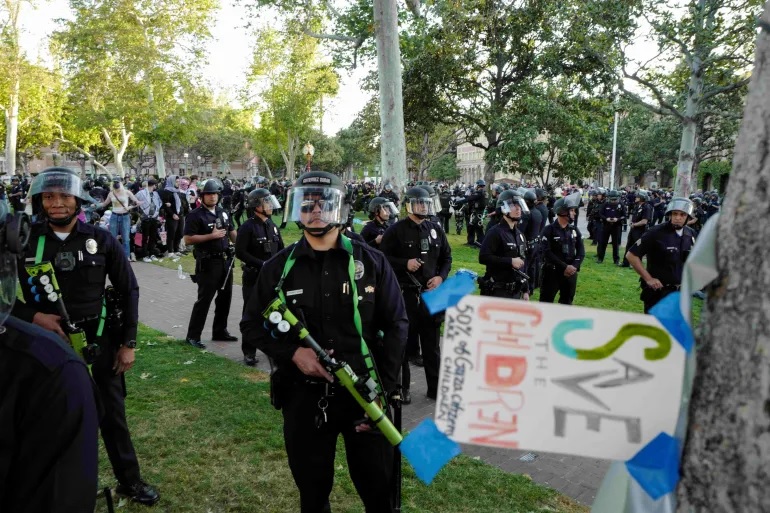
USC responds to student protests with increased security measures
The University of Southern California (USC) has implemented enhanced security protocols following student protests last spring in support of Gaza, which resulted in 93 arrests. The protests, involving both students and faculty, included peaceful activities such as yoga and educational discussions. USC President Carol Folt called in the Los Angeles Police Department to disband the encampment.
Folt expressed regret for not visiting the encampment prior to police intervention. In response to the protests, USC has introduced new security measures, including metal detectors, security checkpoints, and mandatory ID scans for new students. The administration has also increased disciplinary actions against protest participants, requiring them to complete reflective papers as part of their sanctions.
The USC chapter of the American Association of University Professors has raised concerns about these measures, noting their potential negative impact on the university's relationship with the surrounding community. Some students of color have reported feeling marginalized due to the heightened security presence.
USC is not alone in facing these challenges; over 100 universities nationwide have enacted stricter protest rules. Institutions like San Francisco State University have chosen alternative measures, such as divesting from companies involved in weapons production, while Columbia University has implemented color-coded security systems to regulate campus access.







